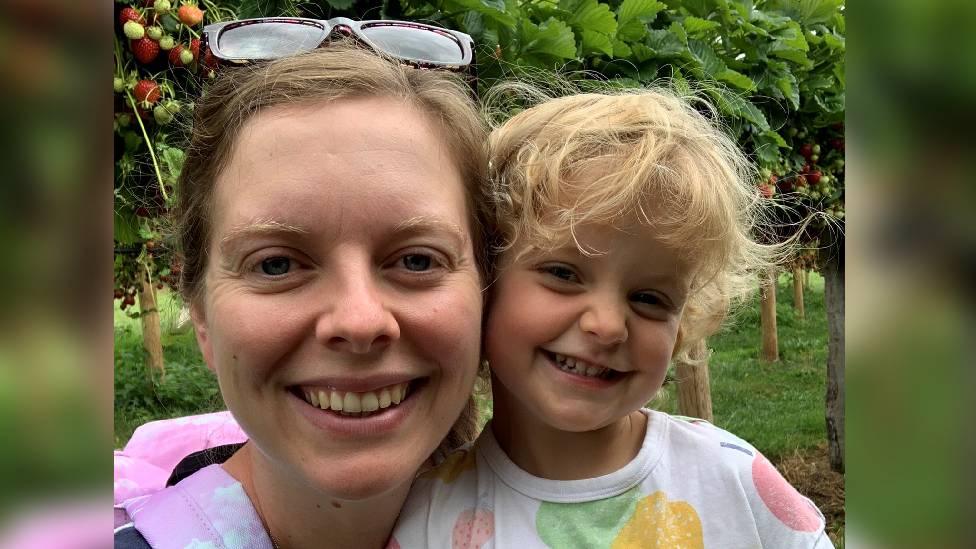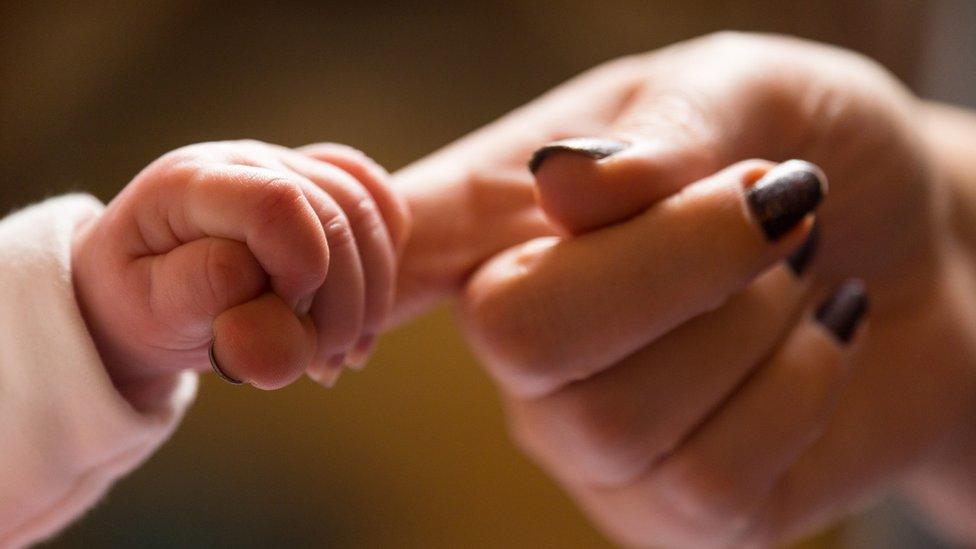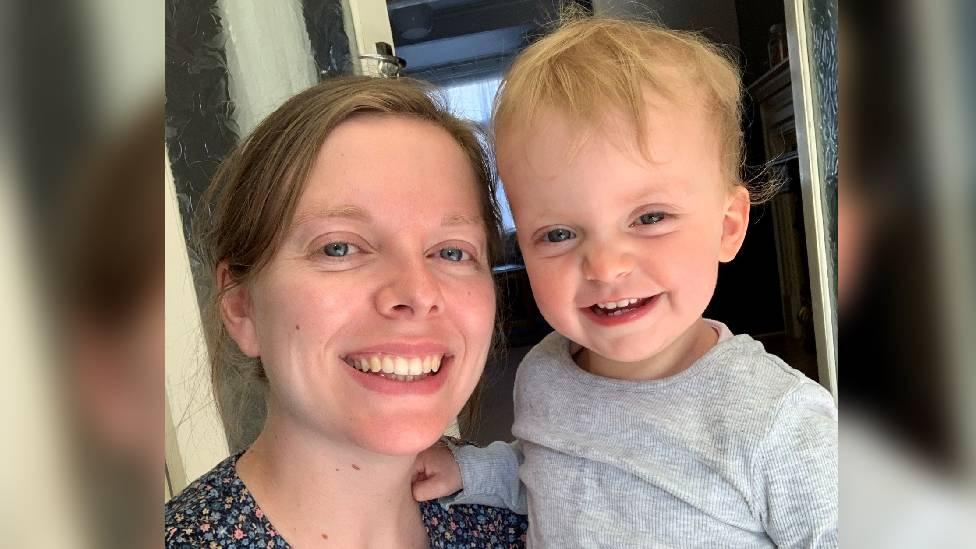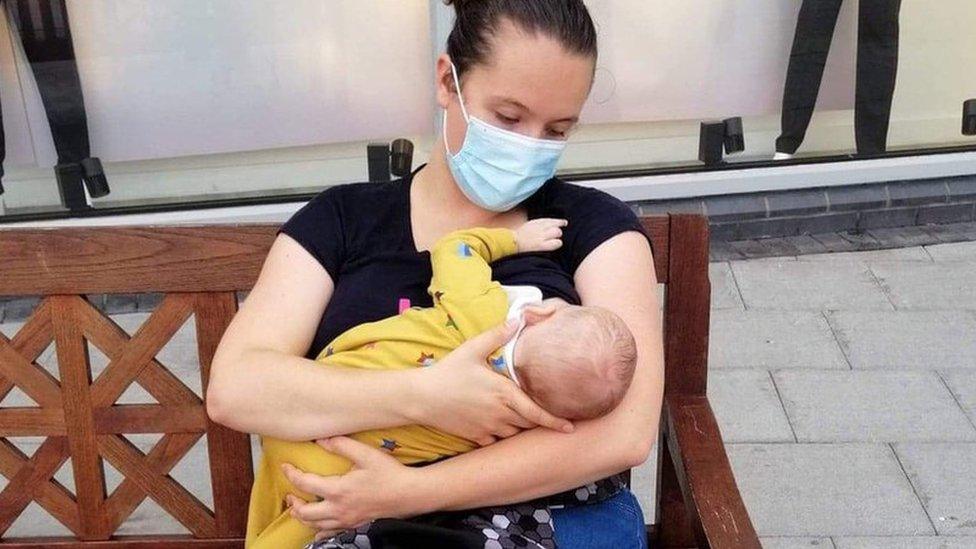Breastfeeding: Mums put off by public disgust - study
- Published

Gwenan Pritchard had a crude comment shouted at her from workmen when she lifted her vest to feed her daughter Eiri in the park
Disgust and disapproval from onlookers is one of the reasons why some women are reluctant to breastfeed in public, researchers have found.
Swansea and Cardiff University experts said strangers' attitudes had a direct impact on mothers' behaviour.
Gwenan Pritchard, 31, from Ynysybwl, Rhondda Cynon Taf, was "devastated" when workmen made comments about her breasts as she fed her daughter Eiri.
She was in a playground with her friend and their daughters when it happened.
"Both our daughters were about 18 months at the time and my friend was bottle feeding her daughter, and I breastfed mine.
"There were some workers nearby who shouted sexualised comments about my breasts."
She said Eiri, who is now three, stopped feeding and the experience left her really upset.
"To sexualise me and my daughter in that moment it was horrendous, it made me feel ashamed of the bond I have with my daughter."
Ms Pritchard did not go back to that playground for a while and said the experience put her off breastfeeding in public.

Gwenan Pritchard said people do not realise "the impact of their words and their actions"
"It was completely inappropriate, it was in a children's play park, one of the places where my daughter is the happiest and safest and being able to feed without prejudice and that was not what her or I faced," she told BBC Radio Wales.
She is now training to be a breastfeeding support worker because she does not want people to go through what she did.
"It goes beyond not wanting to feed in public, it is about the bond you get with your child, and it not only made me feel embarrassed but it felt like he broke the bond between me and my daughter, because I no longer wanted to feed in public."
Ms Pritchard added that although the experience affected her deeply, she stills breastfeeds Eiri and said society needed to be educated that breastfeeding is not sexualised.

Ms Pritchard was left worried someone would sexualise her and her daughter when she breastfeed
Dr Aimee Grant of Swansea University's centre for lactation, infant feeding and translational research led the study which looked at existing research mostly from the UK, USA and Australia.
Her team examined 17,700 pregnant women and mothers' responses as well as 156 male partners, 46 grandparents and 438 members of the public.
"The attention of members of the public who observed breastfeeding was incorrectly focused on mothers as sexualised women rather than as caregivers to infants who needed feeding," she said.
"This created a hostile environment in which it was harder for mothers to feed their babies, which was stressful and unpleasant."
The study has been published by journal Maternal & Child Nutrition.
It found mothers were aware of stigma relating to breastfeeding in public and feared conflict with strangers.

The study, led by Dr Aimee Grant, has been published in the journal Maternal & Child Nutrition
This fear was not felt evenly, with mothers who were young, poor, and from marginalised ethnicities reporting increased surveillance and stigma. They also experienced reactions of disgust at breastfeeding.
The study also found people had a poor understanding of normal infant feeding behaviour and the need to breastfeed in public.
"We urgently need the public to reframe their view of breastfeeding, so that it is understood as nutrition for babies, rather than a political or sexualised act by their parents," Dr Grant said.
"This means that the public should not stare, tut or make negative comments about breastfeeding babies."
- Published5 July 2022

- Published4 January 2022

- Published6 June 2021
